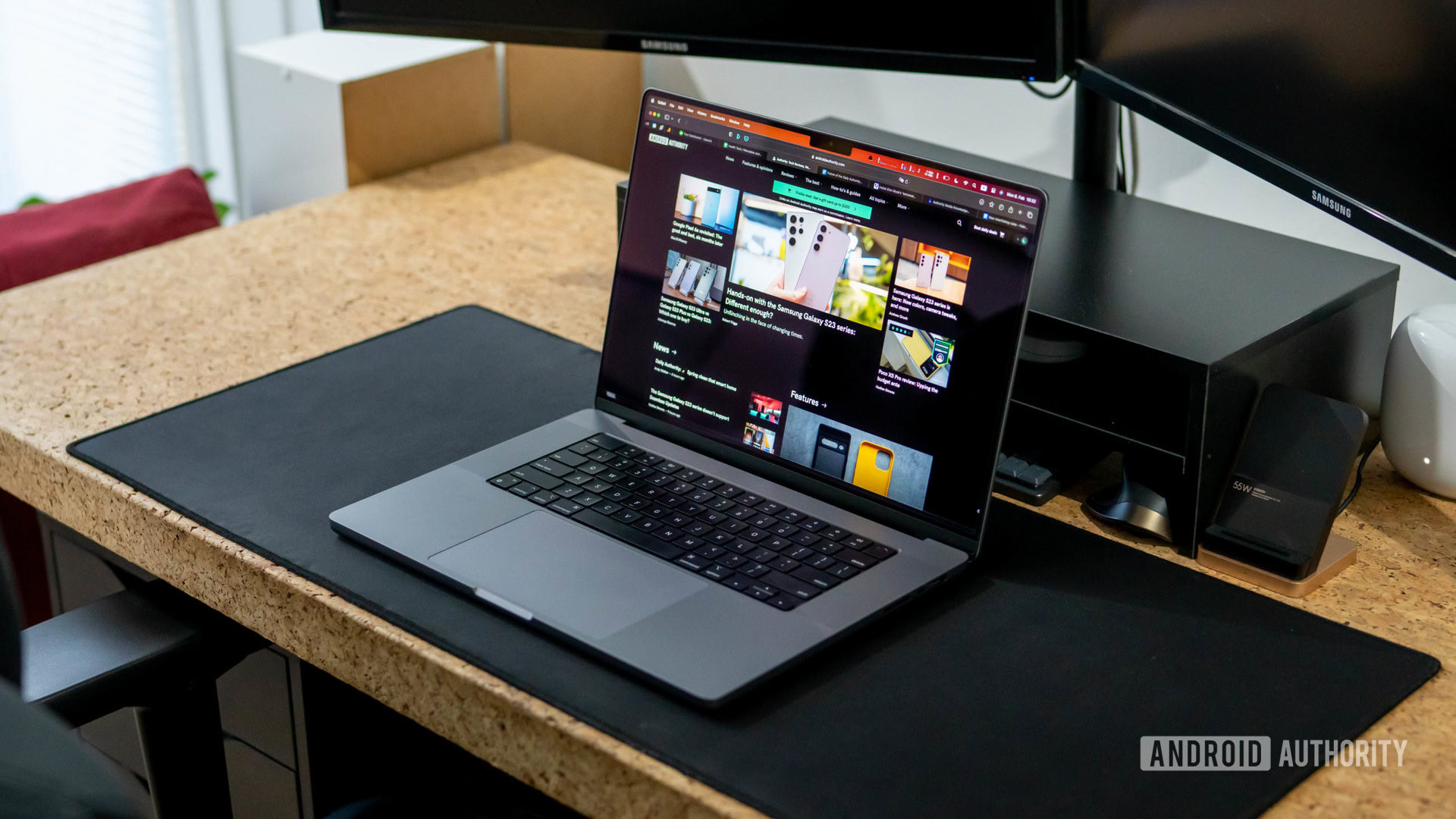Affiliate links on Android Authority may earn us a commission. Learn more.
Apple's AI-focused M4 chip for MacBooks might skip 2024
Published onMarch 12, 2024

- Apple has formally begun development of the M4 SoC, according to a Bloomberg journalist.
- Following Apple’s update history, we may see new devices with the M4 in 2025.
- The M4 will likely be based on an enhanced version of a current processor design.
Apple has already started development of the next MacBook Pro with an updated M series SoC, according to Bloomberg‘s Mark Gurman.
During an online Q&A session about the Apple car on Tuesday, Gurman casually dropped that Apple had begun developing the M4 processor for the upcoming MacBook Pro laptops.
Judging by Apple’s update history for the M series SoCs, this development schedule seems to be right on track.
Apple’s SoC update cycle
Apple launched the M1 in November 2020, introducing the first-ever SoC designed specifically for Macs. Based on TSMC’s 5nm process, the M1 marked a significant turning point for Apple computers. The Apple-designed chips markedly improved the MacBook’s performance and power efficiency when compared to the Intel-based models that preceded them.
Soon after, Apple introduced the Pro, Max, and Ultra variants of the M1, each upping performance by increasing the SoC’s core counts and memory capacity.
Then, Apple settled into a routine update cycle, releasing major upgrades for its M series SoC roughly every year and a half. The M2 came in June 2022 and the M3 in October 2023, with their respective Pro, Max, and Ultra models in between.
MacRumors points out that the iMac, MacBook Air, and MacBook Pro are next in line for a major upgrade. So, if Apple keeps to its schedule, we may see the M4 in one of these devices in the summer of 2025.
What we can expect from the M4
Don’t hold your breath for a 2nm process for the M4, though. Apple has already started the development of the M4, and TSMC is not set to begin production of its 2nm process until later in 2025, so the M4 will likely still be based on a 3nm process.
It is possible, however, that the M4 may be using an “enhanced” version of the 3nm TSMC process, as we’ve seen before with the jump from M1 to M2. The M2 used an “enhanced” version of TSMC’s 5nm process used for the M1.
Although not much else is known about the M4, a Taiwanese outlet claimed that the M4 and A18 Bionic chips will offer more built-in AI processing cores. Apple’s rivals have used improved AI hardware to offer features like article summarization, real-time translation tech, and generative photo editing. So it stands to reason that Apple could offer similar capabilities.